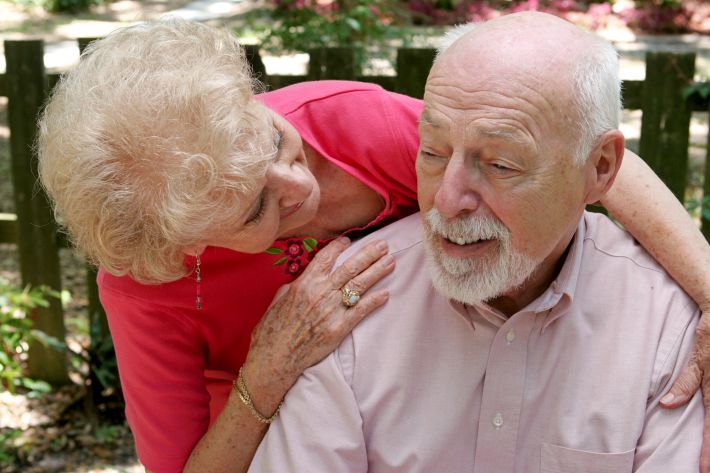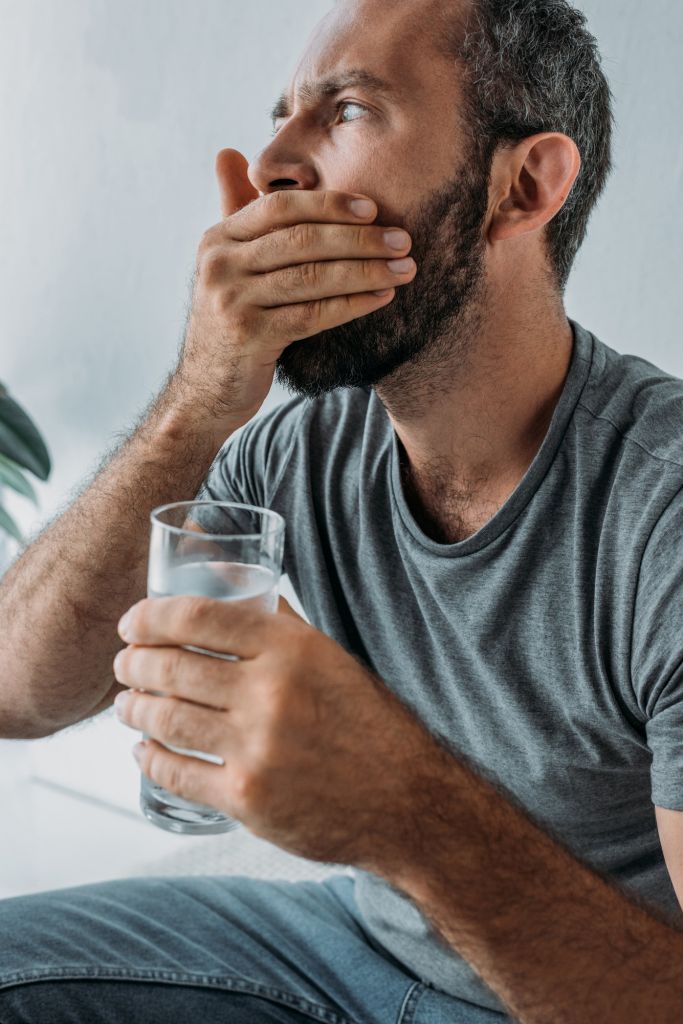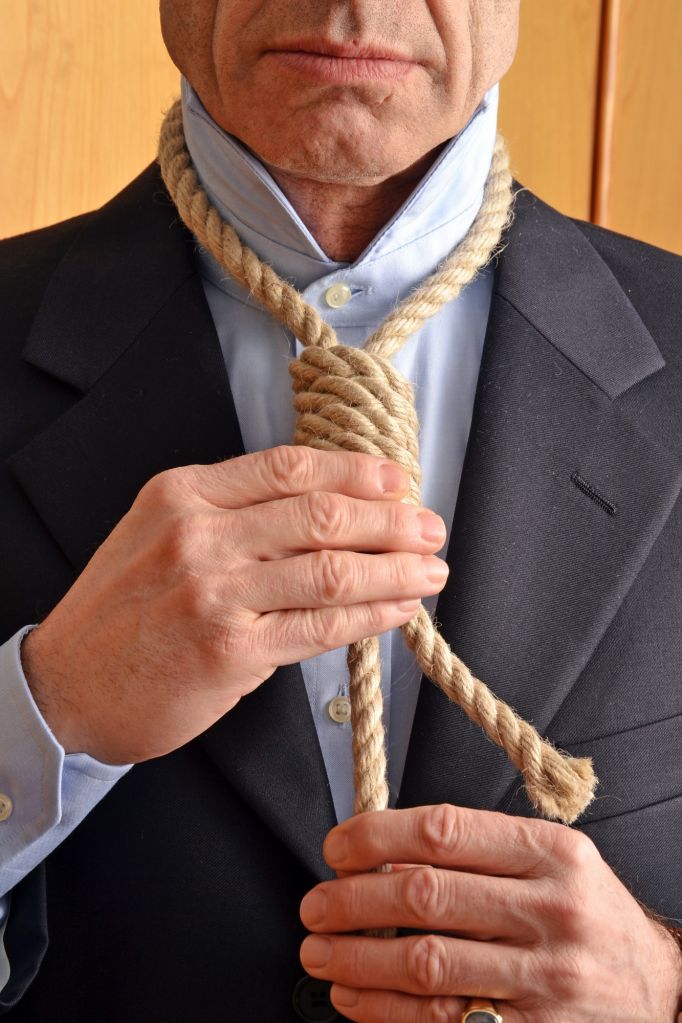Four Myths About Depression in the Elderly

Although depression is not a normal situation for the elderly, it is quite common. It affects roughly 20% of the elderly population, a rate twice as high as the general population (10%).
More...
Myth #1: Depression is a normal part of ageing
There are many elderly not affected by depression.

Those who tend to be unaffected have some of the following characteristics:
- Social supports in place
- They are involved in activities and hobbies, primarily when retirement occurs
- No previous history, and no family history of depression
- They continue to feel they serve a purpose in life
- They have less severe medical conditions
Myth #2: The elderly cannot benefit from treatment of depression

When identified, treatment can be very useful in the elderly. The key is identification.
Just like in younger people, treatment often involves antidepressants.
These medications can take a bit longer to take effect in the elderly, but they do work.
As well, cognitive-behavioural approaches and counselling can help. Increasing social supports and getting daily exercise are also essential aspects of getting better.
Myth #3: There is no risk of suicide in the depressed elderly

Depression is the most common illness among those who die from suicide, with approximately 60% suffering from this condition (Halverson (2019)
Research shows that mental illness is the most critical risk factor for suicide; more than 90% of people who commit suicide, psychiatric illness, most often a mood disorder or an addictive disorder.
Unfortunately, suicide is one of the most deadly complications of depression in all age groups and therefore, plays a role in more than one-half of all suicide attempts.
However, most suicide prevention strategies concern the elderly because they are at greater risk of suicide. Even though depression is often diagnosed in women, the peak suicide rate is repeatedly found in men older than 75 years of age.
The suicide rate is four times higher for males than females. In the United States, male deaths make up almost 80% of all suicide deaths.
Also, men always tend to use more lethal methods, resulting in more terminal and completed suicide reports. This was due to the statistical data, not always reflecting the correct number of suicides, as some families chose not to report the cause of death or instead transcribed the death as ‘accidental.’
Whereas, younger persons who kill themselves regularly have a substance abuse disorder, in addition to being depressed.
A new study shows that Police officers are at a higher risk of suicide than any other profession. Suicide is so prevalent in this profession that the number of police officers who died by suicide is more than triple that of officers who were critically injured in the line of duty.
New York City Police Department (NYPD) in 2018 declared a mental health crisis as the city grappled with the suicide deaths of nine police officers. At least six of the nine deaths involved a gun, many using their service weapon.
Overall, no single determinant, including mental illness, is enough on its own to cause suicide.
Instead, suicide typically results from the interaction of many more factors, for example, mental illness, marital breakdown, financial hardship, deteriorating physical health, a significant loss, or a lack of social support.
If you or someone you know is struggling with depression, be sure to call up the National Suicide Prevention Hotline at 1-800-273-8255.
Agencies which provide support and information
AssistLine
0800 689 5652
Confidential 24hr listening service to anyone contemplating suicide run by trained volunteers from Suicide Prevention Bristol UK.
Calm:
0800 585858
www.thecalmzone.net
Campaign Against Living Miserably Help and support for young men aged 15-35 on issues which include depression and suicide.
HopeLine UK
0800 068 4141
www.papyrus-uk.org
For practical advice on suicide prevention
Lifeline (N.Ireland)
0808 808 8000
www.lifelinehelpline.info
For anyone in N.Ireland who is in distress or despair. Immediate help on phone 24 hours a day 7 days a week.
Face to face counselling can be arranged, also befriending, mentoring. Issues dealt with include suicide prevention, self harm, abuse, trauma, depression, anxiety.
USA.
If you or someone you know may be considering suicide, contact the National Suicide Prevention Lifeline at 1-800-273-TALK (8255) or the Crisis Text Line by texting HOME to 741741.
Baby boomers, mental health and ageing well Review.
Myth #4: Depression means dementia is just around the corner

Studies have shown that there is a link between depression and dementia, with more people with depression going on to develop dementia. However, it does not mean that everyone has this fate!
In other words, just because someone has depression, does not mean that he will necessarily go on to develop dementia too. However, to complicate matters, depression and dementia can co-exist in the elderly. Having depression may nearly double the risk of developing dementia later in life.
At this point in time, there is no clear evidence that suggests that depression causes dementia. It has, however, been noted that increased bouts of depression increase the likelihood of developing dementia.
Although the symptoms of depression and dementia may look alike on the surface (memory problems, decreased motivation, etc.), they still require discernment in order that the best treatment can take place. Always see a physician who can rule out what is happening.
In summary
Four common myths about depression in the elderly have been outlined above. Depression is very prominent in the elderly.
No matter what their age, it is always essential for depression to be identified so that proper treatment can take place and then real living can resume.
Giving them all a better quality of life.
Article Reference Point
- Weir E. Suicide: The hidden epidemic. Canadian Medical Association Journal. 2001;165(5):634.
- Mościcki EK. Epidemiology of completed and attempted suicide: Toward a framework for prevention. Clinical Neuroscience Research. 2001;1:310-23.
- Cavanagh JT, Carson AJ, Sharpe M. Psychological autopsy studies of suicide: A systematic review. Psychological Medicine. 2003;33:395-405.
- Lesage AD, Boyer R, Grunberg F. Suicide and mental disorders: a case-control study of young men. American Journal of Psychiatry. 1994;151:1063-https://www.hhs.gov/answers/mental-health-and-substance-abuse/does-depression-increase-risk-of-suicide/index.html
- Is a medical illness causing your patient’s depression? Current Psychiatry. 2009 August;8(8):43-54.
- What is the suicide rate among persons with depressive disorder (clinical depression) Updated: Oct 07, (2019) Author: Jerry L Halverson, MD; Chief Editor: David Bienenfeld, MD.
https://www.medscape.com/answers/286759-14675/what-is-the-suicide-rate-a - Brody, D. J., et al. (2018). Prevalence of depression among adults aged 20 and over: United States, 2013–2016.
- Suicide rates: An overview of Statistics Canada
by Tanya Navaneelan - https://www150.statcan.gc.ca/n1/pub/82-624-x/2012001/article/11696-eng.htm
https://www.cdc.gov/nchs/products/databriefs/db303.htm - By the numbers. (2015).
https://www.apa.org/monitor/2015/12/numbers - Data and statistics on children's mental health. (2019).
https://www.cdc.gov/childrensmentalhealth/data.html - Depression. (n.d.).
http://www.nami.org/Learn-More/Mental-Health-Conditions/Depression - Depression. (2015).
http://www.cdc.gov/nchs/fastats/depression.htm - Depression. (2018).
https://www.who.int/en/news-room/fact-sheets/detail/depression - Depression. (2018).
http://www.nimh.nih.gov/health/topics/depression/index.shtml - Depression. (2019).
https://ghr.nlm.nih.gov/condition/depression - Depression: FDA-approved medications may help. (2017).
https://www.fda.gov/consumers/consumer-updates/depression-fda-approved-medications-may-help - Depression in women: 5 things you should know. (n.d.).
- Widow of Robin Williams places his suicide in context
https://www.mdedge.com/psychiatry/article/115370/depression/widow-robin-williams-places-his-suicide-context?sso=true
https://www.nimh.nih.gov/health/publications/depression-in-women/index.shtml - Disability evaluation under social security. (n.d.).
https://www.ssa.gov/disability/professionals/bluebook/12.00-MentalDisorders-Adult.htm - Facts & statistics. (n.d.).
https://adaa.org/about-adaa/press-room/facts-statistics
- Francis, H. M., et al. (2019). A brief diet intervention can reduce symptoms of depression in young adults — A randomised controlled trial.
https://journals.plos.org/plosone/article?id=10.1371/journal.pone.0222768 - Galizia, I., et al. (2016). S-adeonsyl methionine for depression in adults.
https://www.cochrane.org/CD011286/DEPRESSN_s-adenosyl-methionine-depression-adults - Hamilton depression rating scale. (n.d.).
http://www.assessmentpsychology.com/HAM-D.pdf - Herkov, M. (2019). About interpersonal therapy.
http://psychcentral.com/lib/about-interpersonal-therapy/ - Hirschfeld, R. M. (2014). Differential diagnosis of bipolar disorder and major depressive disorder.
http://www.jad-journal.com/article/S0165-0327(14)70004-7/pdf - Markowitz, J. C., & Weissman, M. M. (2004). Interpersonal psychotherapy: principles and applications.
http://www.ncbi.nlm.nih.gov/pmc/articles/PMC1414693/ - Postpartum depression facts. (n.d.).
https://www.nimh.nih.gov/health/publications/postpartum-depression-facts/index.shtml - Riba, M., & Cusumano, D. (2019). Depression among college students.
https://adaa.org/learn-from-us/from-the-experts/blog-posts/consumer/depression-among-college-students - Rice, S. M., et al. (2014). Online and social networking interventions for the treatment of depression in young people: A systematic review.
https://www.ncbi.nlm.nih.gov/pmc/articles/PMC4180352/ - Shors, T. J., et al. (2016). Do sex differences in rumination explain sex differences in depression? (2016).
https://onlinelibrary.wiley.com/doi/full/10.1002/jnr.23976 - Teen depression. (n.d.).
https://www.nimh.nih.gov/health/publications/teen-depression/index.shtml - https://adaa.org/understanding-anxiety/depression
- Is a medical illness causing your patient’s depression? https://cdn.mdedge.com/files/s3fs-public/Document/September-2017/0808CP_MedPsych.pdf
- Depression and associated physical diseases and symptoms Dialogues Clin Neurosci. 2006 Jun; 8(2): 259–265.
- Tragic Relationship Between Police Officers and Suicide
- https://www.addictioncenter.com/news/2019/09/police-at-highest-risk-for-suicide-than-any-profession
- https://n.neurology.org/content/87/13/1308 The terrorist inside my husband's brain.



